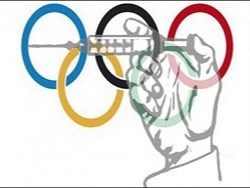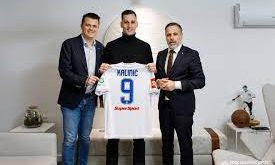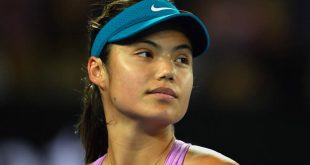
Today in Rio de Janeiro, opened the XXXI Olympic games. The Russian team caught up to them only narrowly represented slightly more than 200 athletes against 436 at the previous Olympic games in London. Thinned and mass sports officials, usually accompanying the team. Doping scandal, not uchihashi recent months, even more worsened the reputation of the Russians.
More interesting will be the results of the competition. However, today I would like to talk about what caused and still causes an overwhelming interest of Russian leaders to the sport – but not declared the cause of “national pride” and the more serious matter about the money.
Sport in Putin’s Russia has become big business for some and a huge burden for the state. In 2000, for its needs from the Federal budget allocated 832 million rubles, in 2015 – already 36.9 billion And this amount, of course, takes no account of investments “socially responsible” corporations, no one-time “injections” for the construction of sports facilities – those Sochi slopes and hotels and stadiums erected for the forthcoming world championship on football. Of course, you need to keep in mind that even approximately it is impossible to assess the scale of the bribes, one way or another migrated to the pockets of officials the IOC in connection with the awarding of subtropical Sochi rights to the winter Olympics, and FIFA officials for the decision on carrying out in Russia of the world Cup.
Rate the most obvious and undeniable moments even enough of them to realize the Economics of sport in modern Russia is the biggest “bubble”, well reflecting the distance between appearance and reality.
The Sochi Olympics, as you know, was the most expensive in the history of the sport – it spent $47 billion (for comparison, the Games in Turin in 2006 cost $700 million, and in Vancouver in 2010-m – $1.7 billion). The authorities put a lot of effort to convince everyone that a significant part of the cost – about $14 billion provided by the sponsors on a commercial basis. However, it later became clear that at least two-thirds of them were made on borrowed funds provided by state banks. Large construction companies Mostovik, OOO Tonneldorstroy”, “Inzhtransstroy” and several others went bankrupt, and the “hole” in the web has reached 600 billion rubles. Responsibility, of course, no one suffered – and the joy of the first all-command place “won” at the Games, will soon fade along with taken away from those caught doping athletes medals. Judging by the probable “adjusted” the number of Russian gold medals in Sochi – 10 – even without subtracting it from five, received the unexpected Russians on the eve of the games, Victor an and Vic wild, every gold medal, spent $4.7 billion (in the case of Canada in 2010 – a total of 121 million).
You may recall the popular sports game – football. I’ve not even going to talk about preparing for the upcoming world Cup and that last week stopped maintained within it the construction of Zenit stadium in St. Petersburg, which has great chances to become the most expensive sporting venue in the world: the estimate now stands at 43 billion rubles, or about $1.1 billion at the exchange rate in periods of allocation of funds. Will relate only to the success of Russian players. At the last European championship, scored two goals and came out of the group – while the annual official income of its players (for example, 11 persons stated in the opening part of the match with Slovakia) was 1.78 billion ($27.4 million). Members of the national team of Wales, who scored in the championship 9 goals (3 of which – in gate of Russians), and advancing to semi-finals, earned in 2015 ₤12.9 million ($18.7 million). It turns out that in Russian estimates one goal line with $13.7 million, and in Welsh – $2.1 million While Fabio Capello, who remained coach of the Russian national team for most part of the pre-championship period, receiving $12 million a year – 2.5 times more than the most expensive coach directly involved in this championship (note that the contract of Fernando Santos, coach of the champion team of Portugal was estimated at $1.4 million per year). Similar to the perspective of the overpayment situation is fixed in the national championship.
Motivation of athletes is also supported by all possible means. If to speak about Olympians, winners of the competitions in Rio was supposed to pay 4 million rubles ($60 million), but this amount can be increased, given the drama of the situation around the Games (for comparison: in the US, the prize is $25 thousand, in Germany – $20 thousand in the UK this practice is absent). Separate medals awarded cars, and in some regions of the apartment or house. However, all this is chump change compared to how people live in Russia, officials from the sport and how much money to spend Olympic Committee (budget not disclosed it at all) and the most wealthy of the Federation, most of whom (accidentally, of course, by coincidence) headed by the rich and successful businessmen of the country. Actually, it is a comprehensive state and “private” support and hold “afloat” the Russian sports.
The uniqueness of it is that – despite the constant attention “of the party and government” is a Russian sport and became a business. If you compare commercial income, such as hockey clubs Washington Capitals and CSKA, the first turns out to be the second exceed 8.5 times; moreover if the average ticket price for the match in Washington DC is $55, the arena CSKA – only 360 rubles (us$5.4). Across the country athletics competitions almost not visited, and hockey clubs, the NHL’s revenue from the sale of tickets and rights to broadcast matches does not exceed 15% of annual budgets, whereas in the NHL it does not fall below 70%, and 15-16 clubs are self-sustaining.
From an economic point of view, the Russian sport is a perfect example of an unprofitable enterprise and created with the help of the state of his image as a successful and wealthy is one of the most inflated “bubble” of our time. In fact, it is this, apparently, lies the key to unlocking the last years in Russia the situation with doping. Apparently, in early 2010-ies of the Russian leaders, it became clear that any investments in sports do not bring the expected result – which, as you can imagine, had to be shown on the “home” Olympics in Sochi. Therefore, the task was to provide results at any cost and through the recruitment of foreigners, and through the “doping program”, oversaw the FSB. First results of the new policy has brought, apparently, in London in 2012, when Russia managed to reverse the steady trend to a decrease in the number of medals won, established since 2000. Sochi was a complete triumph – the team received four times more gold medals than in Vancouver, and after this “unsportsmanlike” methods were, apparently, the main. In politics in Russia “security forces” drove the business from the influence of power and in sport medical doping has replaced financial.
The scandal, which had almost left the Russian team out of the Olympic games may be a little result in the sense of the Kremlin from the point of view of compliance with sports rules and the Olympic Charter – but it just means that in the next years “investment” in the sports in Russia reached unprecedented values in the hope that “salvage triumph over evil.” If it works in a country of rampant ostentation and fraud, time will tell…







